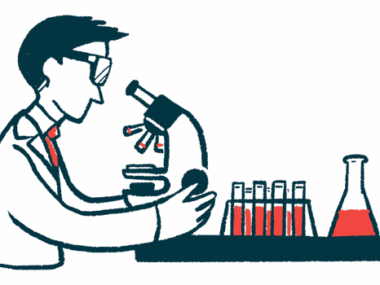FPWR Awards More Than $900,000 to Nine Grants in PWS
Written by |

The Foundation for Prader-Willi Research (FPWR) is funding nine projects that intend to improve understanding and help find treatments, including gene therapies, for Prader-Willi syndrome (PWS).
In total, FPWR awarded a total of $912,251 in the first round of this year’s research awards, according to a press release. The foundation has awarded more than $14 million to research since 2003.
The recipients and brief descriptions of their projects are:
- “Long non-coding RNAs transcribed from Prader-Willi syndrome locus: key regulators of gene expression,” is led by University of Birmingham (England) professor Pawel Grzechnik, PhD. Long non-coding RNAs, as the name implies, are long RNA molecules that do not code for a protein product. The intent of this project is to understand how the genetic deletion that causes PWS affects these RNA molecules, which “will be absolutely essential to lay a foundation for future gene therapies,” the researcher wrote.
- “Novel Transcriptomic Signatures in Blood and Brain Predictive of Behavioral Issues in PWS,” is led by David Godler, PhD, a professor at Murdoch Children’s Research Institute, in Australia. This project aims to use transcriptome data — the entire collection of RNA sequences in a cell — to identify early predictors of autism and severe mental illness in people with PWS. It aims to build off of previous data, which have implicated inflammatory pathways (specifically related to the gene UBE3A) in such behaviors.
- “The role of the placenta in PWS: mapping the expression of PWS genes,” is led by Anthony Isles, PhD, of Cardiff University, Wales. The placenta is a crucial organ for getting nutrients and oxygen to the fetus. This project aims to unravel how PWS-related genes are expressed in the placenta, with the ultimate goal of better understanding how these genes influence early brain development and behavior.
- “Identification of critical periods for the neurodevelopmental and behavioral effects of oxytocin (YEAR 2),” is led by Sebastien Bouret, PhD, and Francoise Muscatelli, PhD, of INSERM, in France. Oxytocin is a hormone that helps regulate appetite and social interactions, and previous research suggested that it could be therapeutic in PWS. The main goal of this project (in its second year) is to figure out at what point the effects of oxytocin are greatest, from birth to adult life. Also, the research is exploring neurological drivers of oxytocin’s benefits in PWS.
- “The functional development of hunger neurons in Prader-Willi Syndrome (year 2),” is led by Marcelo Dietrich, MD, PhD, a professor at Yale University in Connecticut. Within a region of the brain called hypothalamus is a population of nerve cells known as AgRP neurons, colloquially referred to as “hunger” neurons because they are important in controlling the hunger urge. Previous research suggested that some PWS-related genes (particularly MAGEL2) are highly expressed in these cells. The project will use a mouse model to test whether these neurons are overactive in PWS, leading to clinical manifestations.
- “Gene Therapy of Obesity in Prader-Willi Syndrome by an Autoregulatory BDNF Vector,” is led by Lei Cao, PhD, of The Ohio State University. Also using a mouse model of PWS, this project will focus on a gene therapy that delivers the gene BDNF, which provides instructions for making a protein of the same name. This gene therapy has shown efficacy and was well-tolerated in mouse models of diet-induced and genetic obesity, the researchers wrote, reducing fat mass and increasing energy expenditure.
- “Precise epigenome editing as a novel therapeutic opportunity for Prader-Willi syndrome,” is led by Claudio Mussolino, PhD, of the University of Freiburg, in Germany. Genomic imprinting occurs when only one of the two gene copies inherited from each biological parent is expressed, while the copy inherited from the other parent is “turned off” by epigenetic modification. Imprinting is known to affect PWS-associated genes. Using cells from PWS patients, the overarching goal of this project is to test proteins capable of activating genes that have been “turned off” through imprinting, without affecting other areas of the genome.
- “Engineering epigenome editing tools for sustained reactivation of maternal PWS genes,” is led by Nahid Iglesias, PhD, from Duke University, North Carolina. Her team also will explore ways to durably “turn on” maternal PWS-associated genes that have been silenced by imprinting. For this purpose, the researchers will use an approach called epigenome editing, based on positive preliminary data in human cells. “If successful, this approach will lay the groundwork towards the therapeutic development of a one-time gene therapy establishing stable reactivation of PWS genes for the lifetime of the patient,” the investigators wrote.
- “Assessment of epigenetic driven circadian rhythm defects in neurons from individuals with PWS (Year 2),” is led by Larry Reiter, PhD, of the University of Tennessee Health Science Center. Circadian rhythm refers to bodily changes that happen cyclically over time, which is important for regulating the sleep/wake cycle. Notably, people with PWS commonly have serious sleep problems, such as daytime sleepiness. Using stem cells isolated from PWS patients, Reiter’s team aims to identify circadian rhythm changes characteristic of PWS, with a particular emphasis on DNA modifications known to occur at different times during the day and night. This may help identify treatments for sleep problems in these patients, the scientists said.





